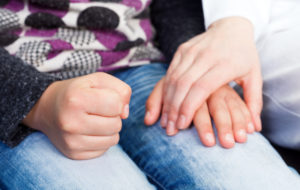 As a child counselor, I know that children are as susceptible to stress and the pressures of everyday life as adults; and that means that they often exhibit the symptoms of anxiety that you might normally associate with adults reacting to stressful situations, like headaches, stomach upset and insomnia. If your child is showing signs of having trouble dealing with school, friends or with something else that may be happening in his life, you should know that while anxiety in children isn’t unusual, it shouldn’t be ignored. You should seek the help of an experienced child counselor if it makes life difficult for your child for an extended amount of time. There are some things you should know about anxiety in children that will help to understand it and cope with it:
As a child counselor, I know that children are as susceptible to stress and the pressures of everyday life as adults; and that means that they often exhibit the symptoms of anxiety that you might normally associate with adults reacting to stressful situations, like headaches, stomach upset and insomnia. If your child is showing signs of having trouble dealing with school, friends or with something else that may be happening in his life, you should know that while anxiety in children isn’t unusual, it shouldn’t be ignored. You should seek the help of an experienced child counselor if it makes life difficult for your child for an extended amount of time. There are some things you should know about anxiety in children that will help to understand it and cope with it:
What Anxiety Looks Like In A Child
Anxiety in children doesn’t always manifest as worry. Your child may be angry, irritable, sad or scared. If his anxiety stems from school, whether it’s academic or social, he may come home exhausted from dealing with and trying to hide his anxiety during the day. The reality is that, for many children, school is a snake pit of pubescent hormones, bullying, hostility and more and it can be an exhausting environment for them. Even those students who manage to hold it together during the day and appear “normal” may come home and lash out at you or a sibling because they can’t lash out at school. They may have panic attacks, refuse to follow rules or even become violent.
Your Child Isn’t Being A Brat
Think about your own past feelings of anxiety. Was it something you enjoyed feeling or enjoyed inflicting on others? Probably not. Your child doesn’t enjoy feeling anxious either. He wants to feel happy and confidant; but his anxiety won’t let him. Acting out at home is less about wanting to manipulate you or be aggressive than it is a cry for help and understanding. Anxious children are often the most sensitive children and they don’t want to be in trouble with you or anyone else for lashing out.
What You Can Do To Help
As a parent, it can be difficult to know how to help your child deal with stresses you can only imagine; but it is always a good idea to remember that your children react to, and imitate, how you behave. If your child is stressed, angry or loud, you must be calm, relaxed and quiet. Be physically affectionate and encouraging. Engage them in activities like walking, running, playing ball or anything else that can release feel-good hormones like endorphins. Most importantly, you must let your child know that everything they’re feeling will pass and that things will change with time.
The best thing you can do for your child is to let them know that you want to help and that you’ll listen to them, no matter what they have to say. It is also important to know that a child counselor can provide a neutral outlet for them to express their anxiety in a safe setting. For help in North Texas, call us at Insight Child & Family Counseling at (972) 426-9500 or visit us online at www.j9n.83e.myftpupload.com.

